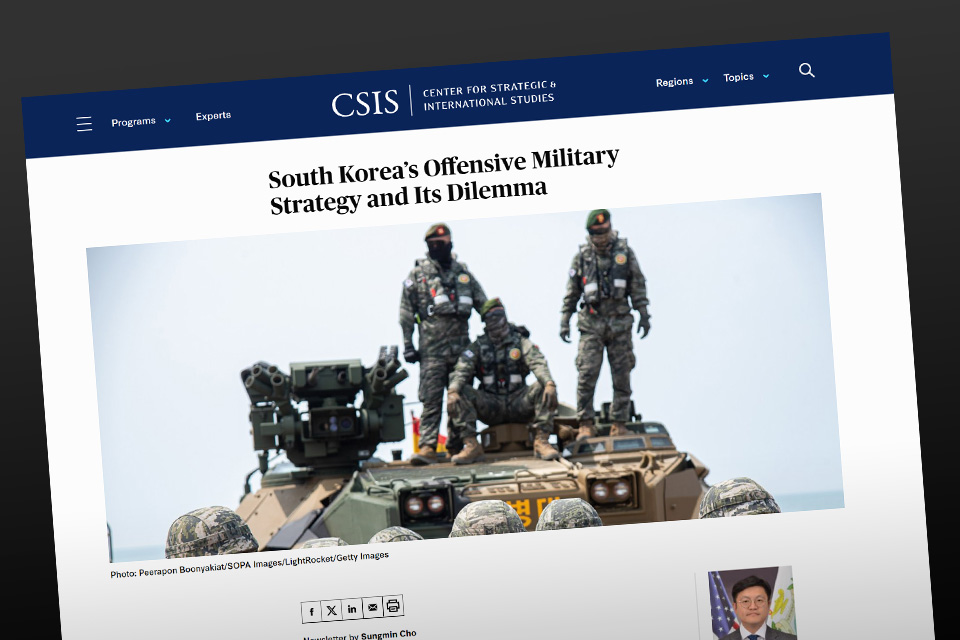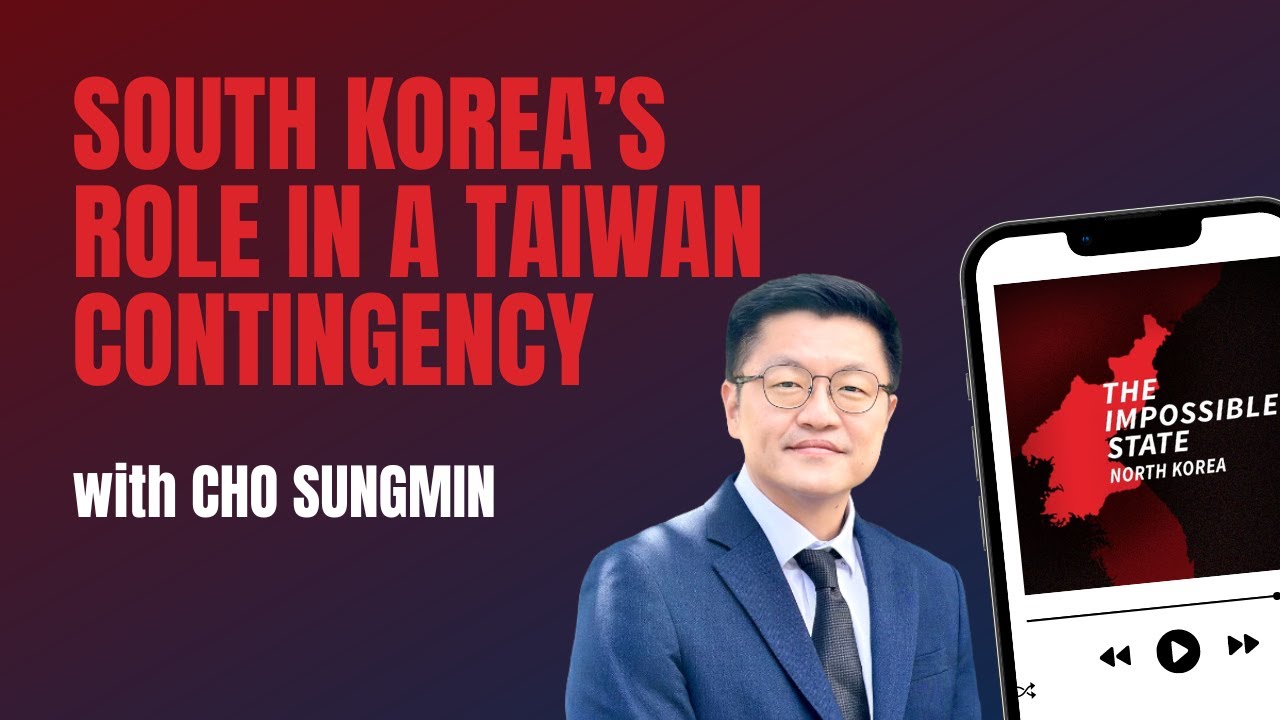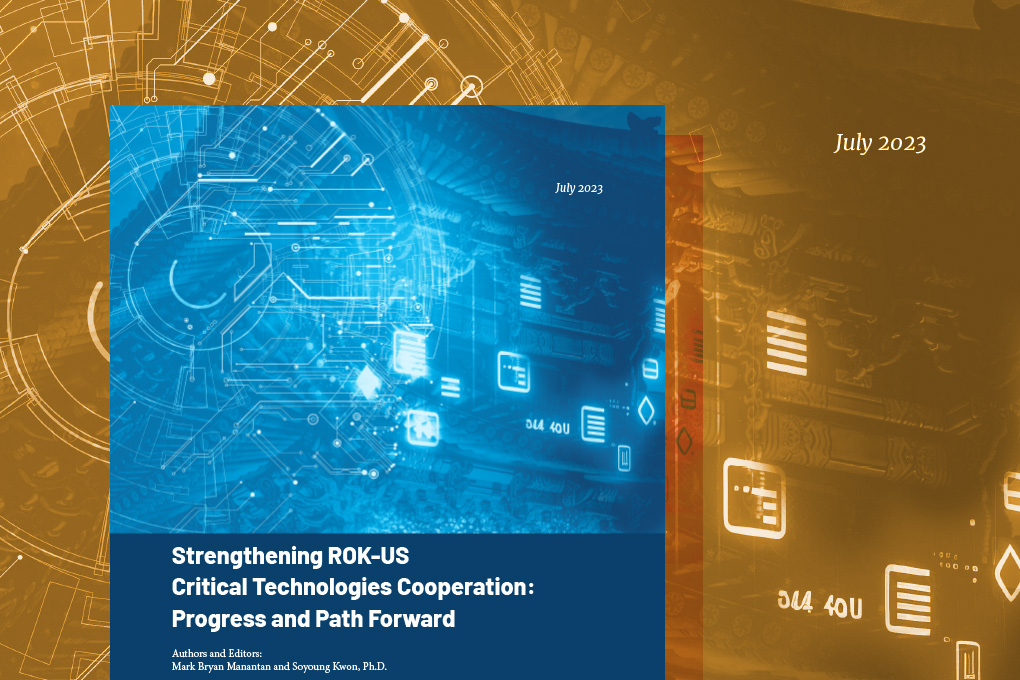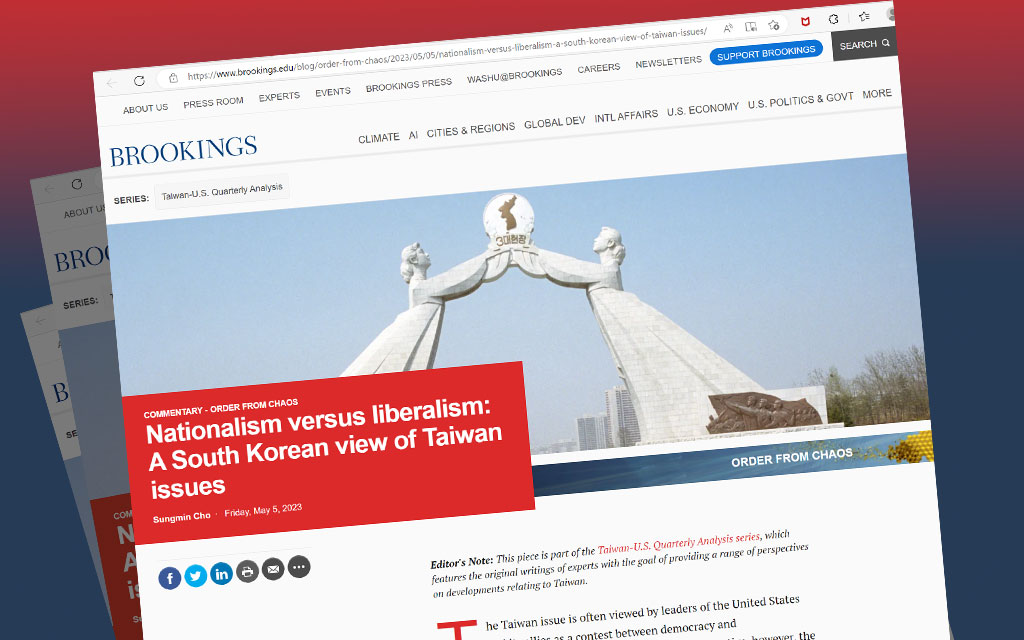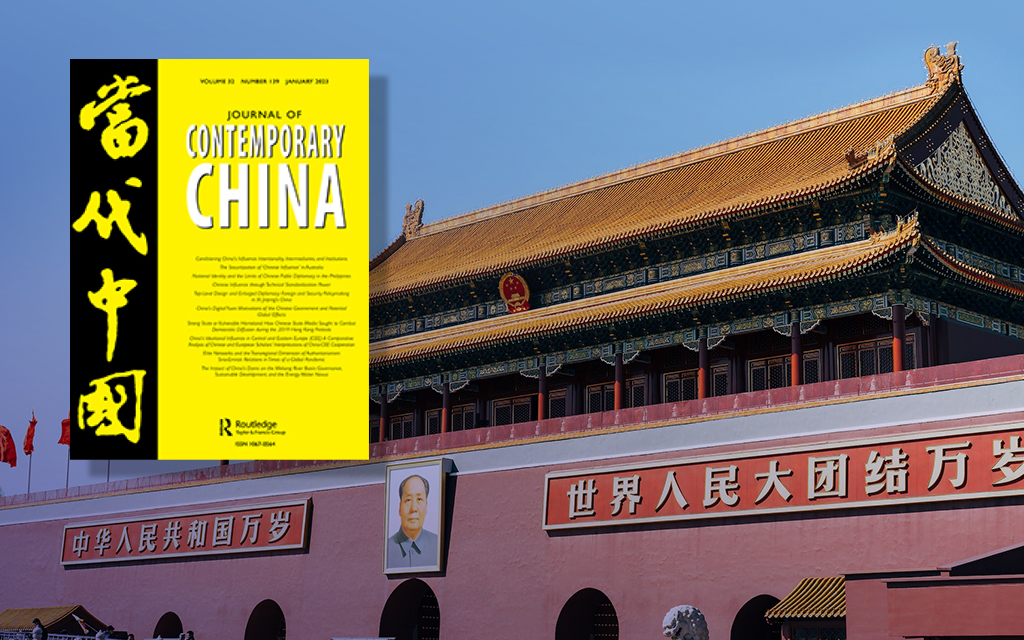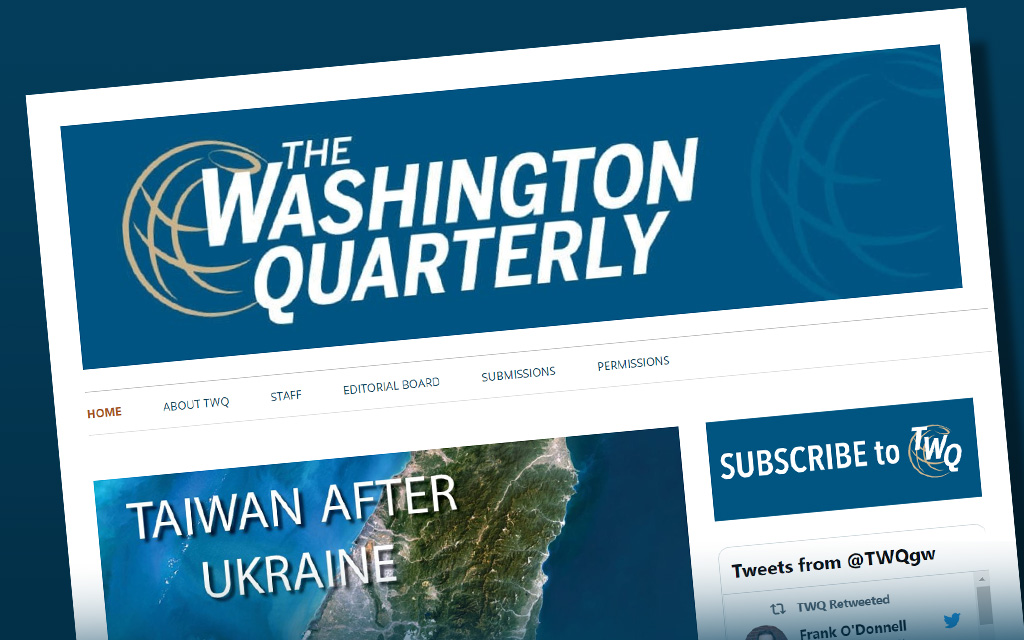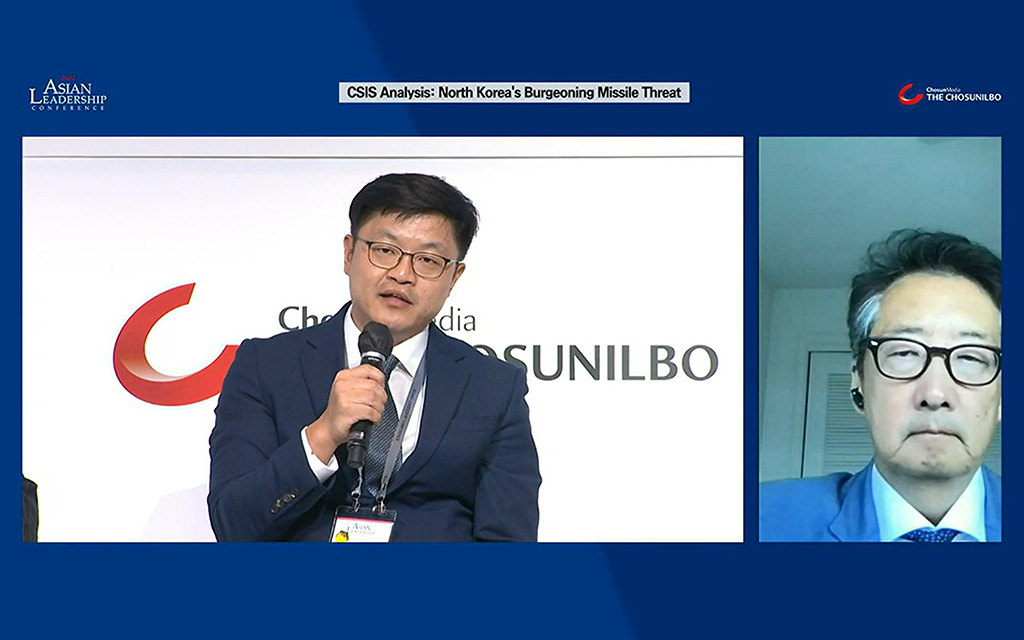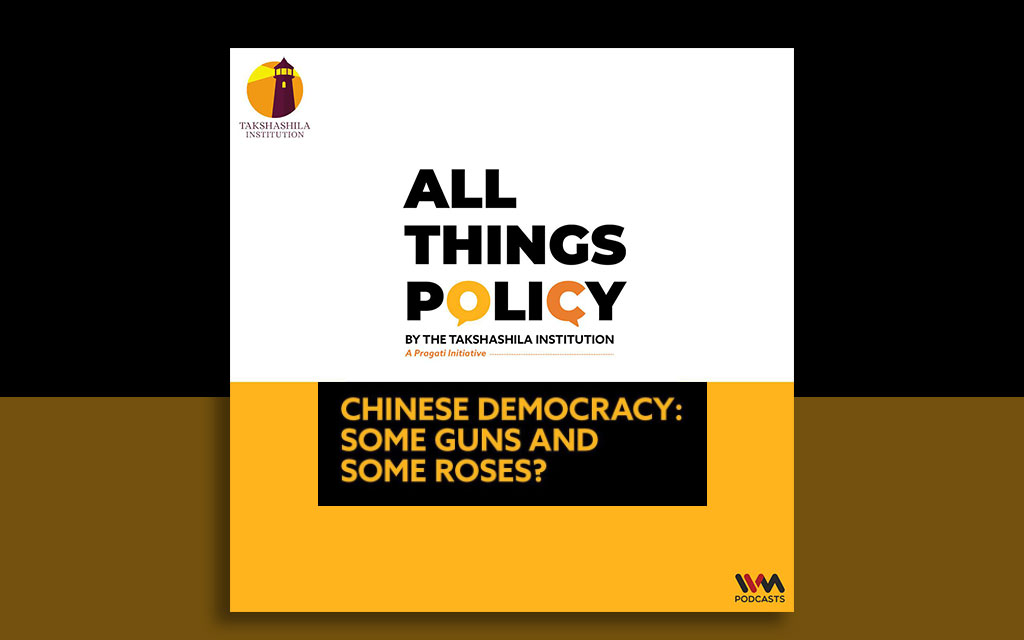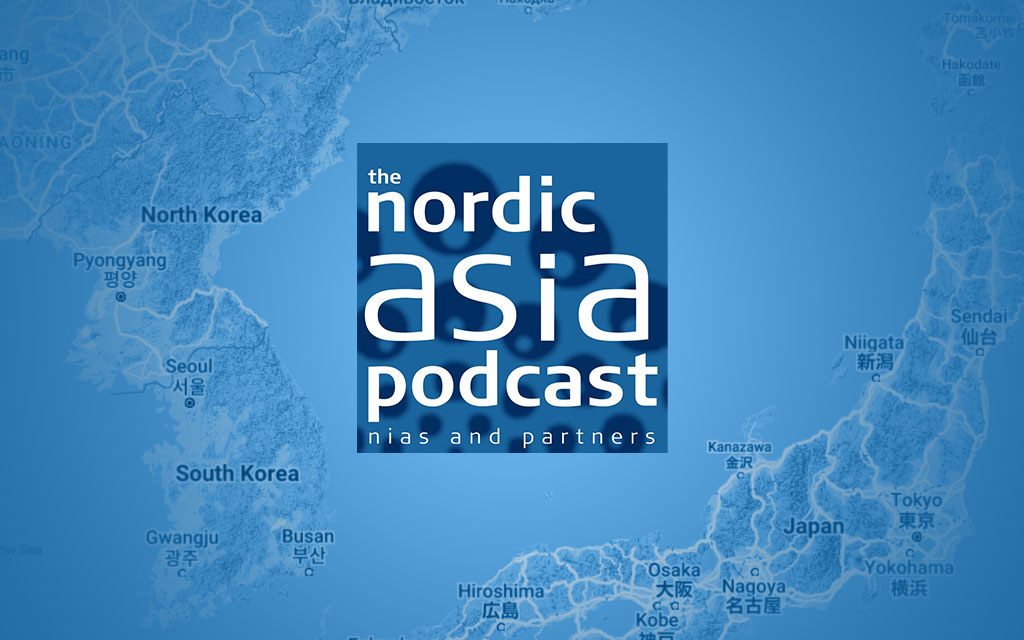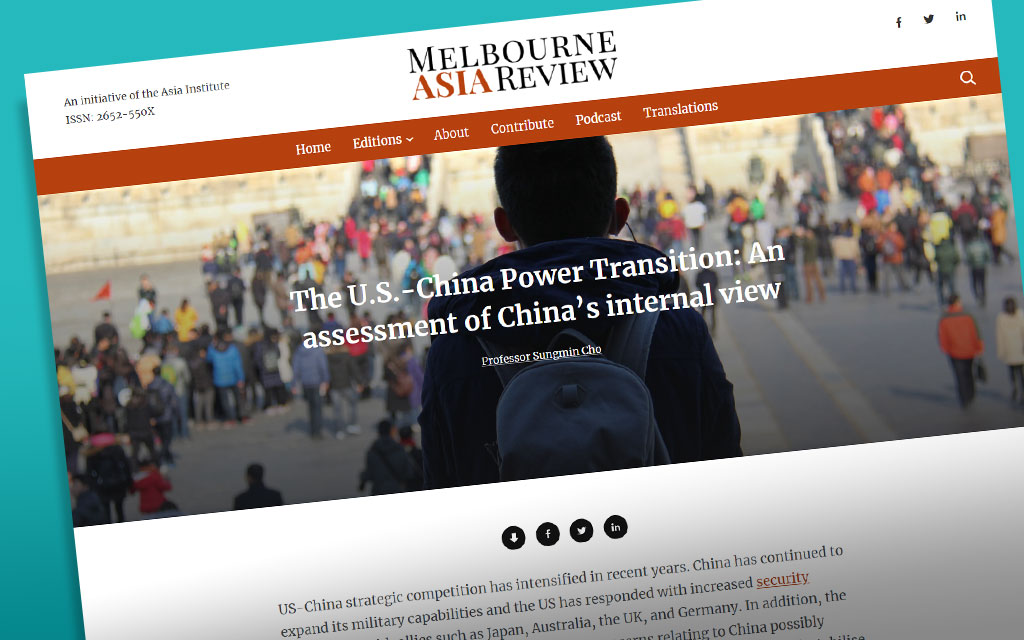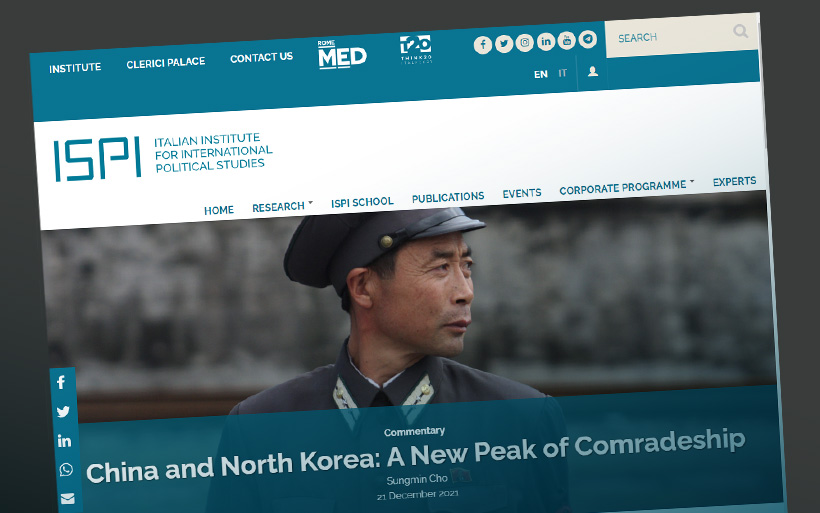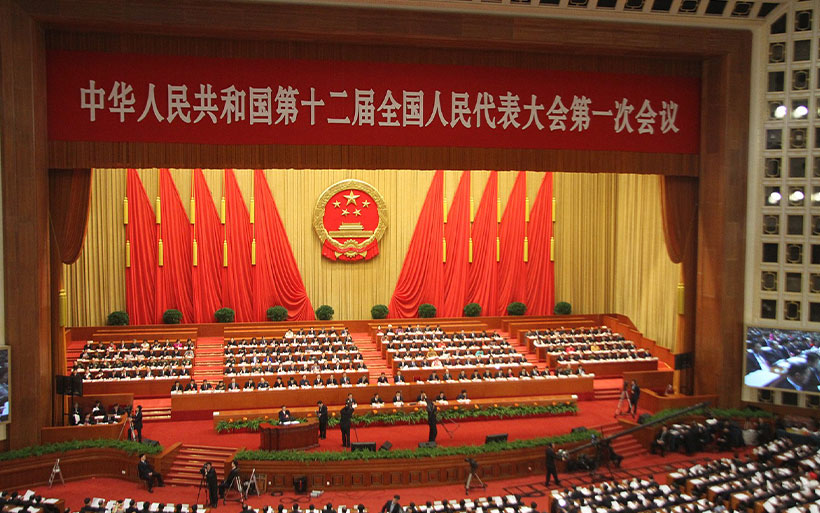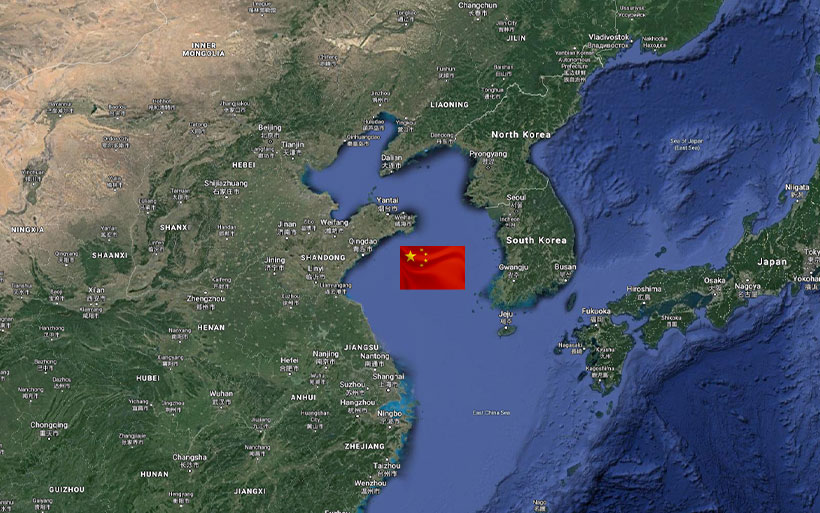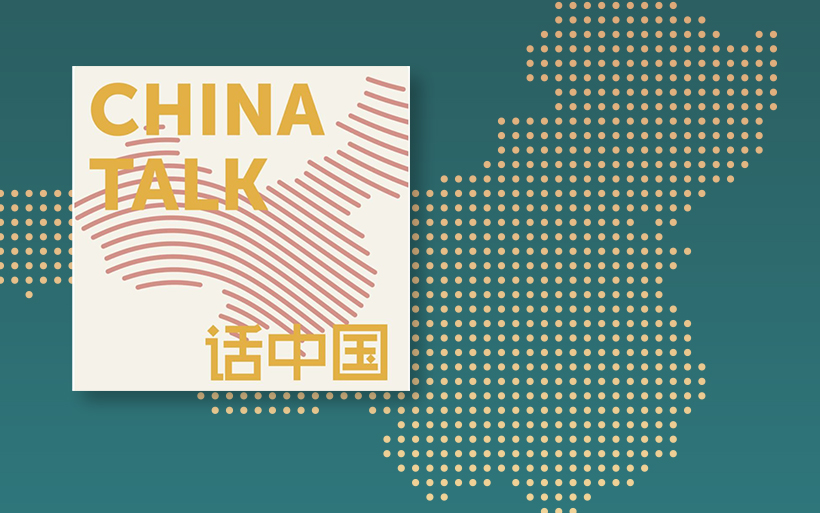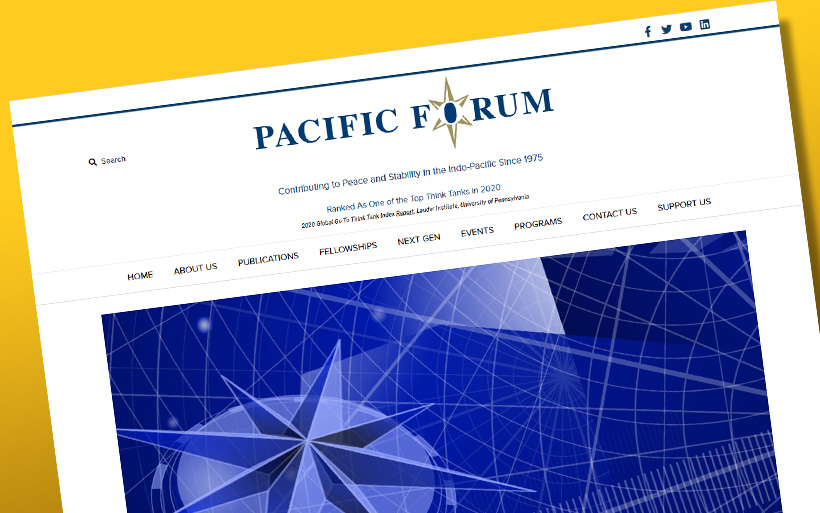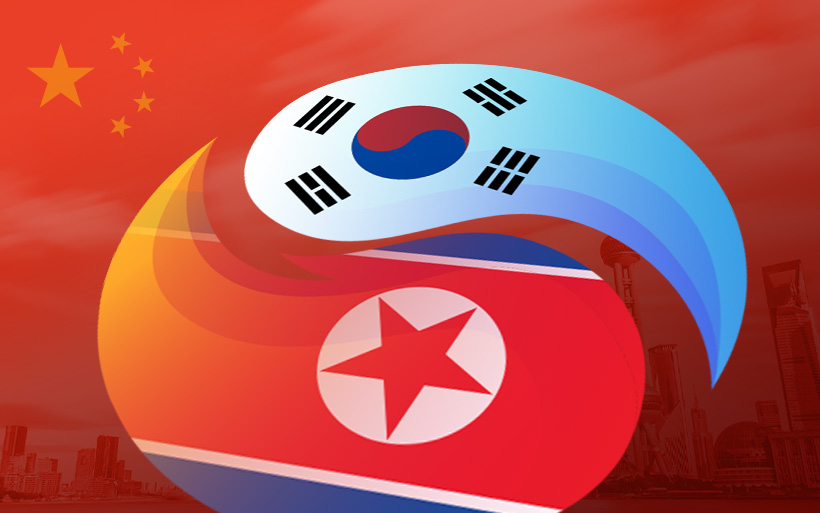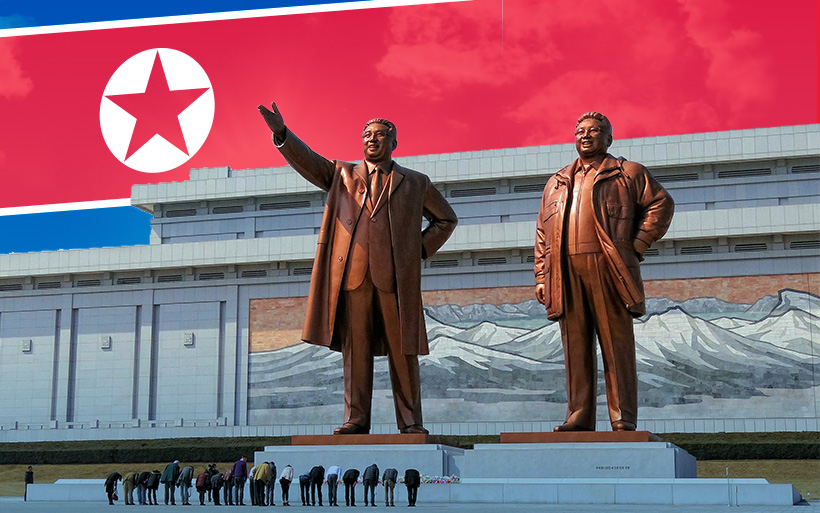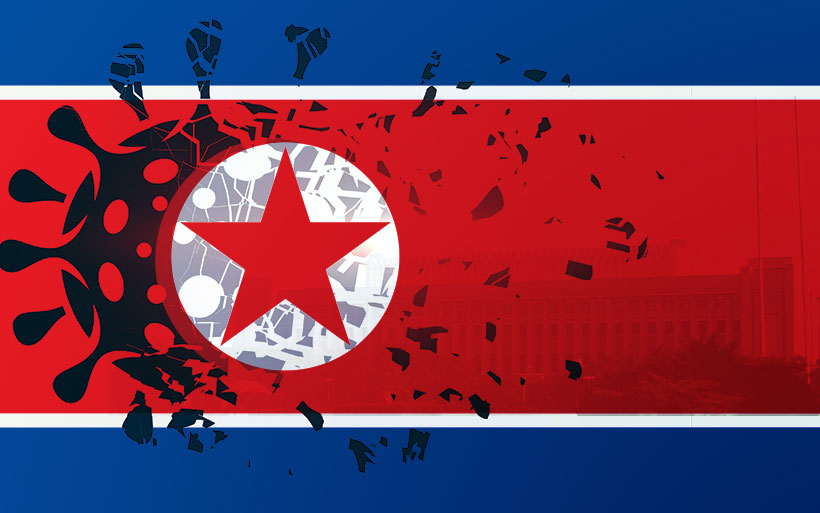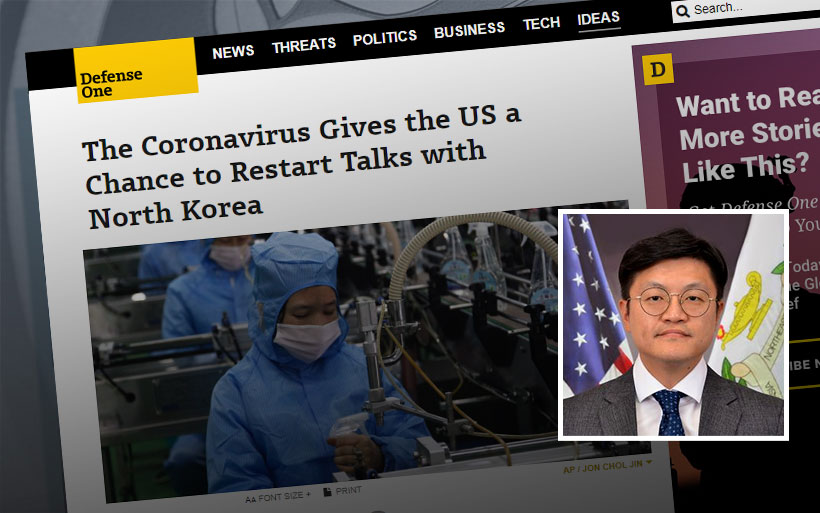Cho
South Korea’s Offensive Military Strategy and Its Dilemma
APCSS Editor2024-03-01T16:15:44-10:00March 1, 2024|Categories: Faculty Articles, Publications, news, Cho|Tags: South Korea, ROK, US|
Chinese Views of North Korea’s Uncertain Future
APCSS Editor2025-05-19T16:09:25-10:00October 20, 2023|Categories: news, Cho, Media|Tags: North Korea, South Korea, podcast, Chinese|
Dr. Sungmin Cho Discusses South Korea’s role in a Taiwan Contingency on the CSIS Podcast
APCSS Editor2025-05-19T15:42:51-10:00September 21, 2023|Categories: news, Cho, Media|Tags: South Korea, podcast, CSIS|
Professors Cho and Kim publish articles on strengthening ROK-US critical technologies
APCSS Editor2025-06-04T14:27:44-10:00July 26, 2023|Categories: Kim, Publications, Cho|Tags: Cooperation, ROK, US, Critical Technologies|
Nationalism versus liberalism: A South Korean view of the Taiwan issues
APCSS Editor2023-05-08T10:30:33-10:00May 8, 2023|Categories: Faculty Articles, news, Cho|Tags: Taiwan, South Korea, opinion|
Has China’s Economic Development Led to the Democratization of China?
APCSS Editor2023-01-06T14:27:10-10:00January 6, 2023|Categories: Faculty Articles, news, Cho|Tags: China, economics, Democratization|
How South Korea Can Contribute to the Defense of Taiwan
APCSS Editor2022-10-24T15:22:36-10:00October 24, 2022|Categories: news, Cho|Tags: Taiwan, defense, South Korea, ROK|
Dr. Sungmin Cho Presents at the 22nd Asian Leadership Conference in Seoul
APCSS Editor2025-06-04T13:32:35-10:00July 20, 2022|Categories: College, news, Cho, Engagements|Tags: korea, leader|
Chinese Democracy: Some Guns and Some Roses?
APCSS Editor2025-06-04T13:31:20-10:00May 23, 2022|Categories: news, Cho, Media, Engagements|Tags: China, asia, podcast, Media|
DKI APCSS Professor Sungmin Cho Featured on the Nordic Asia Podcast
APCSS Editor2025-06-04T13:24:28-10:00April 5, 2022|Categories: Publications, news, Cho, Media|Tags: asia, podcast, Media, Nordic|
The U.S.-China Power Transition: An assessment of China’s internal view
APCSS Editor2025-06-04T13:23:46-10:00March 28, 2022|Categories: Publications, news, Cho|Tags: China, Indo-Pacific, U.S., Xi|
North Korea Is Becoming an Asset for China
APCSS Editor2025-06-04T09:47:47-10:00February 15, 2022|Categories: Publications, Cho|Tags: China, North Korea, South Korea, U.S., missile|
South Korea’s Taiwan Conundrum
APCSS Editor2025-06-04T09:48:16-10:00January 6, 2022|Categories: Publications, Cho|Tags: Taiwan, South Korea|
China and North Korea: A New Peak of Comradeship
APCSS Editor2025-06-04T09:49:44-10:00January 5, 2022|Categories: Publications, Cho|Tags: China, North Korea|
Why did China engage with Western democracy promotion programs?
APCSS Editor2025-06-04T09:52:56-10:00September 10, 2021|Categories: Publications, news, Cho|Tags: China, Democracy, Programs|
China’s quiet challenges at sea: explaining China’s maritime activities in the Yellow Sea, 2010–2020
APCSS Editor2025-06-04T09:52:38-10:00June 11, 2021|Categories: Publications, news, Cho|Tags: Maritime Security, China, Yellow Sea|
How Beijing Sees Korea
APCSS Editor2021-05-24T16:37:29-10:00May 24, 2021|Categories: news, Cho, Media|Tags: China, North Korea, podcast|
The Joint Recovery of Fallen Soldiers from the Korean War: One Way for American, Chinese, North and South Korean Soldiers to Cooperate and Reconcile
APCSS Editor2025-05-29T10:30:11-10:00April 26, 2021|Categories: Security Nexus, news, Cho|Tags: North Korea, South Korea, U.S., Reconcile|
US-China Relations
APCSS Editor2025-06-04T09:51:25-10:00February 24, 2021|Categories: Publications, Cho|Tags: China, U.S.|
New research article about Chinese perspectives of Korean unification
APCSS Editor2021-01-07T13:07:14-10:00January 7, 2021|Categories: Publications, news, Cho|Tags: North Korea, policy, South Korea|
New research article about North Korea’s economic reform and opening policies
APCSS Editor2020-12-03T11:41:14-10:00December 3, 2020|Categories: Publications, news, Cho|Tags: North Korea, policy, economic|
Why We Need a Regional Approach for Crisis Management with North Korea
APCSS Editor2025-05-29T10:41:55-10:00July 15, 2020|Categories: Canyon, Security Nexus, news, Cho|Tags: North Korea, COVID-19, U.S., HADR|
The Coronavirus and its Likely Impact on North Korea
APCSS Editor2025-05-29T10:39:34-10:00May 1, 2020|Categories: Faculty Articles, Security Nexus, Cho|Tags: COVID-19|
The Coronavirus Gives the US a Chance to Restart Talks with North Korea
APCSS Editor2020-03-25T13:21:26-10:00March 23, 2020|Categories: Faculty Articles, Cho|Tags: north, korea, commentary, white, house, coronavirus|



